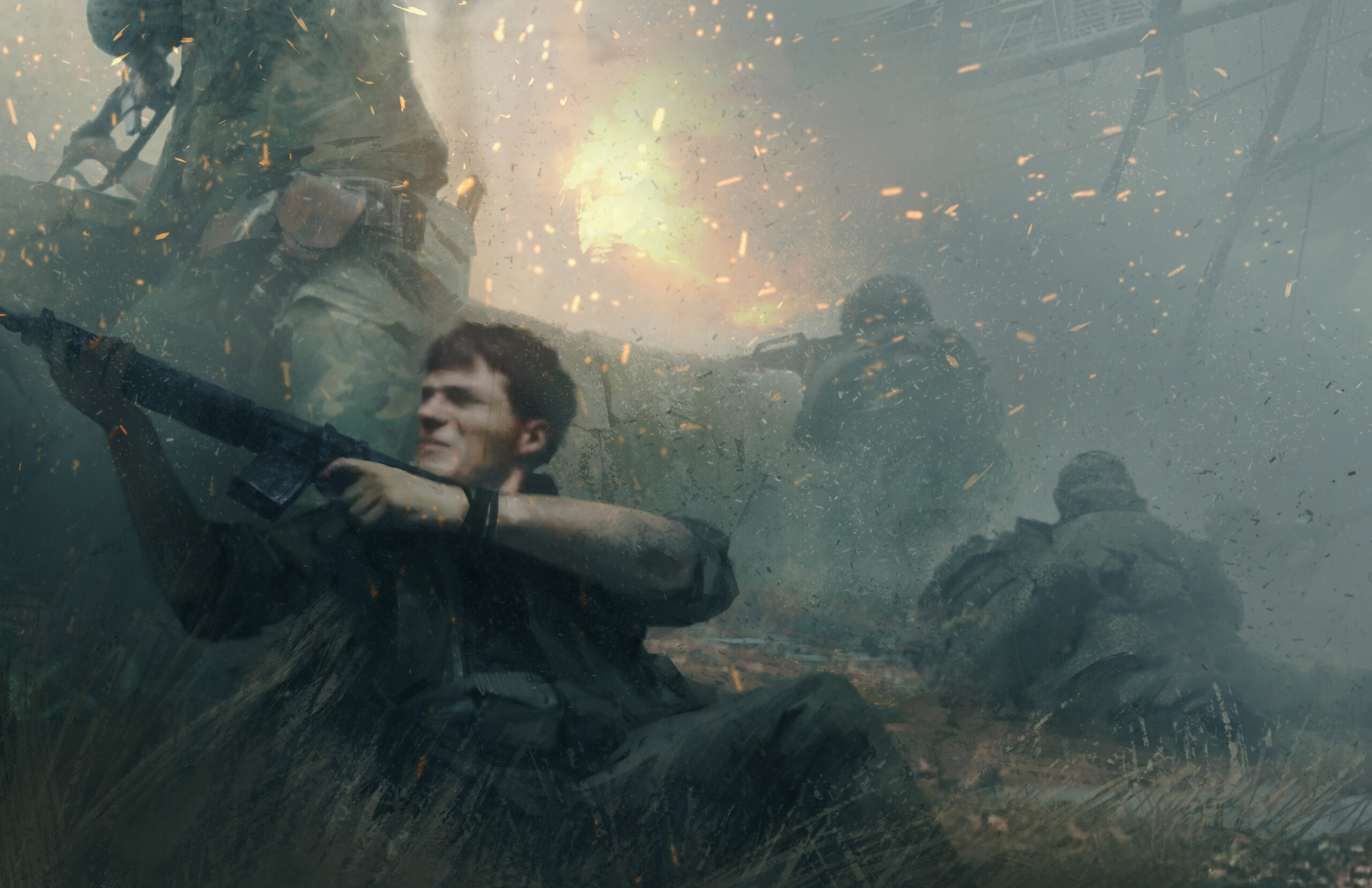Several roleplaying games of the 1980s dealt directly with the Cold War, or the possible consequences if it turned hot –
Paranoia (1984),
Twilight 2000 (1984), and
The Price of Freedom (1986). This post is about the reviews of the latter two in the British roleplaying magazine,
White Dwarf, and subsequent debates in its letters pages.
Twilight 2000 is set in Europe two years after a nuclear exchange. The PCs are American soldiers or their allies. Marcus L Rowland's review in
White Dwarf #68 (1985):
While the system is playable, the moral stance and attitudes it exemplifies are fairly loathsome. The rules favour the style of behaviour found in 'fun' war films; player characters will occasionally get killed (but not terribly often)... There are rules for infection and radiation poisoning, but they aren't nearly harsh enough. The setting, two years after the last nuclear weapon was used, has evidently been designed to avoid showing the worst effects of the bomb; the random encounters don't include civilians suffering from third degree radiation burns, blind children, and the hideously dead and dying victims of blast and heat. Starvation and plague are occasionally mentioned, with the implication that characters can always use their weapons to get food and medicines...
The suggested theme (which beautifully explains the attitude of this game) is to 'return home' to America: Europe evidently isn't worth anyone's time or effort. The rules never say anything about the possibility of rebuilding settlements, negotiating local peace treaties, or doing anything else to start civilisation working again. The box blurb says 'They were sent to save Europe. . . Now they're fighting to save themselves', and it's evident that this game has been written by and for Americans, with little or no understanding of European attitudes or desires.
A letter from Tom Conway in
White Dwarf #71 (1985) agreed with Rowland: "Congrats to Marcus L Rowland for sticking the boot in the Americanised 'Battlefield Europe' views of Twilight 2000 – it was asking for it!"
If it's true that American roleplaying games were capable of exerting influence on British public opinion during the Cold War, changing attitudes to be more in favour of the US, then
Twilight 2000 would have to be considered a failure of soft power, at least on Rowland and Conway.
The Price of Freedom is about US resistance to a Soviet invasion. Ashley Shepherd's review in
White Dwarf #86 (1987) is mostly positive. Its presentation is "excellent", game system "competent", and GM-ing advice "some of the best to appear in any game." But Shepherd strikes a different tone regarding the game's message:
The whole presentation of the game is far from that of Twilight 2000, which presented a terrible world picture, but did so in a relatively neutral way. Price drops all pretence of being a neutral game system: 'Go out and kill them Commies!' is the message.
I have the feeling that Price is intended to be taken as a tongue-in-cheek game. At least, I hope it is…
The game was debated in the letters page of
White Dwarf #87. Alan Reid wrote:
Your reviewer cheerfully mentions that the game mainly involves killing 'commies'; these might be members of an alien species fit only to be killed in this game, but in reality the millions of people who might call themselves, or might be called, communists are human beings. The game promotes a casual disregard for human life and lends itself to the justification of all manner of repression, torture and massacre in the real world, by effectively branding anyone who might come within a certain range of political views as sub-human.
You may reply that the game is really tongue-in-cheek; if so, it is not very detectable from the advertising.
Marc Gascoigne, the letters page editor, added:
Having both read Price and talked to its author, Greg Costikyan, I still find myself rather disturbed by its premises and assumptions. Sure, it's a game where people take on personas, like actors, but I don’t happen to like the characters they are forced to adopt. I personally feel it is a fantasy game, but a very unpleasant one. Obviously some of our correspondents disagree. We've had quite a few indignant letters defending both sides of the argument, but there is one very interesting common point which they all seem to share, and it is this: regardless of whether the game is fantasy or a disguised political statement, you'd have to be very, very stupid to spend your money actually buying The Price of Freedom. The designer of the game has admitted that he wrote this game purely and simply to make money, to prey on the gullibility of right-thinking American gamers, and I say good luck to him. If people really want to buy the game that's their look-out.
Gascoigne was removed from his position at
White Dwarf for this response, though he continued to work for Games Workshop. The next issue features a reply from Costikyan, several positive letters, all from Americans, and an apology to Costikyan from the editor, Mike Brunton: "Apologies for the tone that was taken in the editorial comment. Fact is, Greg is one of the best designers in the biz."
As with
Twilight 2000, I'm not sure any of this could be seen as a victory for American soft power.




